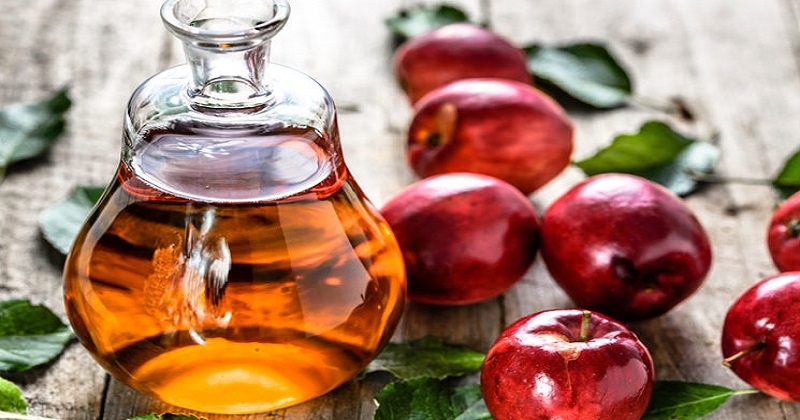
Apple cider vinegar has been existing for thousands of years. In early times, it was a treatment for coughs and infections. And now, apple cider vinegar is promoted as weight-loss support, acid reflux medication, and more. Young Indians show enthusiasm for vegan and gluten-free choices at the bar, cider-a fermented summer beverage produced from apples draws interest.
In the Indian market after 2017, the beverage, which is produced from apples and is brewed with minimal processing, has an alcoholic content varying from 1.2% to 8.5% ABV. Ciders can be mild or carbonated, based on secondary fermentation and carbon dioxide injection. Commerce has seen a higher trend notwithstanding craft beer and whiskey governing the perch, as young people look to turn consumption towards vegan and gluten-free offerings at the bar. And apple drinks give the added benefit of antioxidants.

Homegrown cider label, Wildcraft Beverage, located in Maharashtra, uses apples from the northern hills of the nation. “Kashmiri apples are sourced directly from the farmers, and the Himachal variety is sweet, but more importantly, not genetically modified which is why we chose it. We also use the skin of apples, in our Hard Apple cider which celebrates the fruit,” says Priyanka Patel, who helms the action with her husband Mehul.
In extension to the classic Hard Cider available in bottles at ?180 each, Wildcraft Cider offers an extensive collection of fruity alternatives, mulberry, coffee-orange, mango, and strawberry ciders. Ayush Arora, co-founder of Mumbai-based resto-bar, Hammer & Song is dazzled, “It’s a great beverage for those who dislike the taste of alcohol and like something sweet and fruity. They have greatly appreciated the balance and the use of indigenous mulberry. We have seen some of our consumers even turn our ciders into cocktails and desserts.”
Omkar Shivhare, a frequent client in Mumbai says, “When I moved back from the UK to India, I was on the lookout for a good cider. The cider itself isn’t too sweet or too dry like most ciders tend to be. The 8% plus alcohol level is just the cherry on the top.”Kapil Kanetkar, owner, Genuine Broasters Chicken, Mumbai, agrees, “Hard Apple Cider was a very interesting introduction to our customers. Patrons mostly come for beer bucket offers. However, once they gave it a go, they practically switch over.”
The pandemic forced a stop and swivel. “For a brand that started in December 2019 with no idea that a pandemic was looming, it sure has taken its toll on us. With excise relaxing norms on home deliveries, we had a little relief. It also gave us ample time to focus on innovation,” describes Priyanka, as the label prepares to extend its services to Karnataka and Goa by the conclusion of the year. Thirsty Fox Cider, the latest brand in the crowd, draws a Massachusetts staple to the Indian market. Siddharth Sheth, founder-CEO, spent much of 2014 through 2016 pursuing the perfect cider in Somerville, Massachusetts. He mailed a handwritten note to the patrons at Bantam Cider asking them to be fellow explorers in his sortie to get all-natural, craft apple ciders to India.
Thirsty Fox; Foxes are infamous among orchard landlords, with their incredible ability to take the best apples. So the label carries the cunning burglar as well as hand-illustrated botanicals, motivated by 17th Century Belgian botanist, Pierre-Joseph Redouté. Sheth explains, “We started with apples from Himachal Pradesh and Jammu and Kashmir. But unable to achieve the desired product profile, we finally zeroed in on the right blend of apples from Washington State and Oregon. We would be more than thrilled to find a local source that exceeds the standards of our current supplies which would lower transportation costs and import taxes and duties, which account for 70% of the basic cost of the materials.”
Including two gluten-free iterations, valued at 300rupees per short bottle, Thirsty Fox Izzy, is a golden cider, with orange blossom honey, and Thirsty Fox Reed, a ruby-red, semi-dry cider, accustomed with tart cherries and peppercorns. While all direct selling is routed through prime shops in Mumbai and Pune for home delivery, Thirsty Fox also markets through online platforms and its website. Sheth is sure that his ciders will soon discover the place at tables in Karnataka, following this year.
Morgan Beverages, which has carried Paladin wines from Italy and Marchigue Panul red and whites from Chile, joined the cider market in 2018 with 200-year-old Sheppy’s Cider, and Australian pick, Three Oaks Cider. Sheppy’s ciders are brewed applying naturally occurring wild yeast from Somerset’s (UK) cider and dessert apples, providing them a different flavor, not imitated by other yeasts. The yellow juice from fresh apples is ripened in oak vats which have been in the Sheppy family for almost 100 years. Shashank Rathore, marketing head at Morgan Beverages says, Indian drinkers, still favor more familiar notes to full-bodied-ciders.
“Sheppy’s 200 Special Edition Cider goes down smooth, since it has notes of whiskey, having been aged in oak barrels, while the classic draught version is an acquired taste. Three Oaks Cider, made with freshly crushed Red Delicious, Pink Lady, and Granny Smith apples from Adelaide, is smooth with light and crisp notes.”
Rathore aims out that Chennai has been a fantasy market for their ciders with a younger part of customers, and a cheaper price point related to Mumbai. While Sheppy’s is open only at premium TASMAC outlets at 470 rupees, plans are advancing to give the ciders at bars and restaurants once there is a semblance of normalcy. “The curious aspect of cider in the Chennai market is that it falls under the wine category since it uses fruit and is a fermented beverage.” With ideas to develop, post-pandemic, Rathore is sure of taking his ciders to Goa and the capital as well.

Post Your Comments